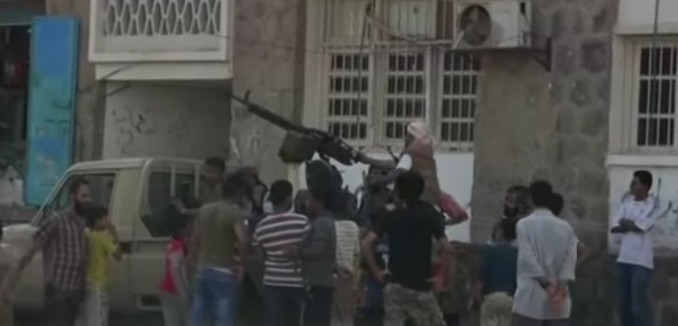A range of media outlets blasted the Obama administration on Thursday and Friday over the White House’s Middle East policy in the broadest sense, arguing that the increasingly chaotic region is in a downward spiral due, in part, to missteps by President Barack Obama’s foreign policy team. The various conflicts engulfing the region spilled over into Yemen earlier this week as a coalition of Arab states launched attacks against the Iran-backed Houthis who have seized control of the country. The United States was described as having precipitously created a power vacuum that Iran has filled.
The Wall Street Journal editorial board wrote Friday that the latest example of the regional power vacuum is the “meltdown” in Yemen, where a Saudi Arabia-led coalition is conducting airstrikes against the Iranian-backed Houthis, who forced Yemen’s U.S.-allied president from power. “Has a policy ever been so thoroughly repudiated in so short a time?” the editorial board asks. Iran seeks to “neutralize if not destabilize the Gulf regimes as part of its plan to dominate the region.” Meanwhile, the United States continues its negotiations over the Iran nuclear program in Lausanne, Switzerland: “All of this makes Mr. Obama’s obsession with a nuclear deal with Iran seem increasingly out of this world…It’s not too much to say that America’s traditional allies in the region fear that Mr. Obama wants to cast them aside and create a new U.S.-Iran alliance.”
On Thursday, Michael Crowley of Politico critiqued the administration’s foreign policy while referring to a “meltdown” in the region. Crowley quotes James Jeffrey, Obama’s former Ambassador to Iraq, saying, “We’re in a…free fall here.” The Obama team has been “repeatedly caught off-guard” by developments in the Middle East and, continues Crowley, “Obama looks poised to leave an even more dangerous and unpredictable region than the one he inherited in 2009.” Suzanne Maloney, a senior fellow in the Middle East policy center at the Brookings Institution, said, “The mood here is that we really are at a crisis point that is unprecedented in recent memory.”
NBC foreign correspondent Richard Engel called the administration’s policy regarding Iran “convoluted” observing “We’re fighting both with and against Iran in Syria, and fighting with Iran in Iraq. There are many people who I’ve spoken to — many in the military, many policy analysts — who say that what we’re seeing here is an incoherent policy regarding not just Iran, but regarding the Middle East in general.”
Iran has been exerting its influence in Iraq via Shiite militias, in Syria by actively backing President Bashar al-Assad in a conflict that has claimed more than 210,000 lives, and in Yemen through the Houthi militia, which overthrew the U.S.-allied Yemeni government in February. Iranian assets have moved into the Israeli border on the Golan Heights, and are thought to be actively assisting Hezbollah in building its infrastructure.
Similarly, in February a staff editorial in The Washington Post argued that “the Obama administration has declined to counter increasingly aggressive efforts by Iran to extend its influence across the Middle East and seems ready to concede Tehran a place as a regional power at the expense of Israel and other U.S. allies.”
The latest push-back to the administration’s foreign policy was anticipated in an op-ed in The New York Times written by Saudi Arabia’s Ambassador to the United Kingdom, Mohammed bin Nawaf bin Abdulaziz al-Saud in December 2013, who warned, “[R]ather than challenging the Syrian and Iranian governments, some of our Western partners have refused to take much-needed action against them.…This means the Kingdom of Saudi Arabia has no choice but to become more assertive in international affairs.”
[Photo: BBC News / YouTube ]




